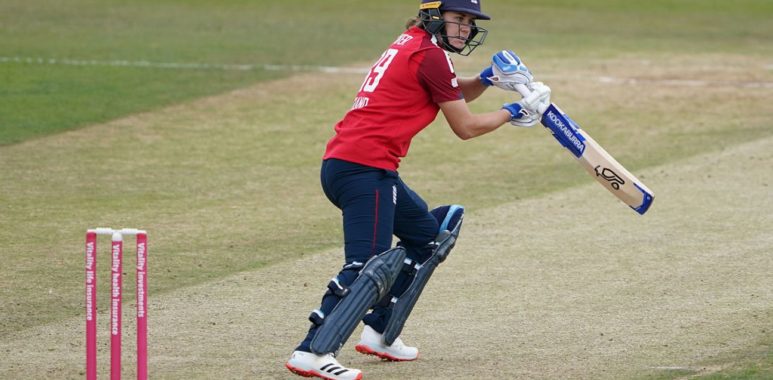
England women vs West Indies women
For the first five years of her England career, Nat Sciver looked ill-suited to batting in T20 international cricket. She was shuffled up and down regularly, and struggled for fluency in the middle order: in her first 37 innings, she averaged 18.10, while scoring a strike rate of 96.96.
But in the last two-and-a-half years, she has flourished. Since March 2018, when she made her first T20I half-century against Australia in Mumbai, she has averaged 34.96 and struck at 123.29, managing to find the tempo required batting at No. 3 and 4.
This calendar year has been particularly productive: since the start of the T20 World Cup, she has scored five half-centuries in 11 innings, a run culminating in her career-best 82 off 61 balls against West Indies on Saturday. Throw in her ever-improving medium pace, which has allowed England to field three frontline spinners, and she is quickly becoming their most valuable player.
Sciver spoke coming into this series about the importance of “going through the gears at the right time”, perhaps with a nod to her relatively sedate scoring rate after regularly having to prevent collapses at the T20 World Cup.
Her innings on Saturday exemplified that change of mindset: she nudged and nurdled her way to 59 off 52 balls in a crucial rebuilding effort with captain Heather Knight, before putting her foot down to pick up 23 off her next 9, including two fours and a six off Stafanie Taylor’s 19th over.
“I guess I had to play a bit to the situation as well because we’d lost Tammy [Beaumont] and Danni [Wyatt], who have been batting really well so far in the series and getting us off to good starts,” Sciver said. “Heather and I came together and knew that we needed a partnership, so our risk levels were a bit lower.
“I think in general that’s how I wanted to play, regardless of the wickets going down in the Powerplay already. I know when you’re in during the first six, you feel like you need to get away fast and make use of the two fielders out, but as long as I can run well and get it out into the outfield and when I do get my chance to hit the boundary. But in the first two games, I got a bit too caught up in going too boundary-focused first.
“As a team, in the last game we were lacking a bit because we didn’t have a batter in towards the end. We said before the game that we wanted someone in the top five to be there to stabilise it. The 19th over was a big one, because it was easier to hit with the wind into that pocket where I scored probably about 60 of my runs, but [the innings] was a bit more tactical in that way.”
ALSO READ: Women’s game fundamental to ECB despite Covid – Tom Harrison
In truth, West Indies have not been the most testing opposition for England in this series, and Sciver acknowledged that it was important for them to continue to learn and develop in preparation for bigger challenges ahead.
Tom Harrison, the ECB’s chief executive, confirmed on Saturday that there are provisional plans in place for England to play Australia and New Zealand in a tri-series at the start of 2021, while South Africa and New Zealand have both been pencilled in as possible tourists next summer. All of those series await confirmation, but the signs from Saturday’s T20I in Brisbane were that the winter’s mooted opponents will provide sterner tests.
“We want to keep our standards high no matter who we’re playing, and make sure that we’re practising to play against the best in the world,” Sciver said. “It was important for us to make sure that we did the right things and got over the line.
“As a bowling unit we were under pressure a bit more, and they came out with a different order, and obviously Deandra [Dottin] scored some runs again. She’s their biggest player but so far we’ve managed to contain her to about a run a ball. We were pleased to have been under the pump a little bit with the ball but come through in the end.”

